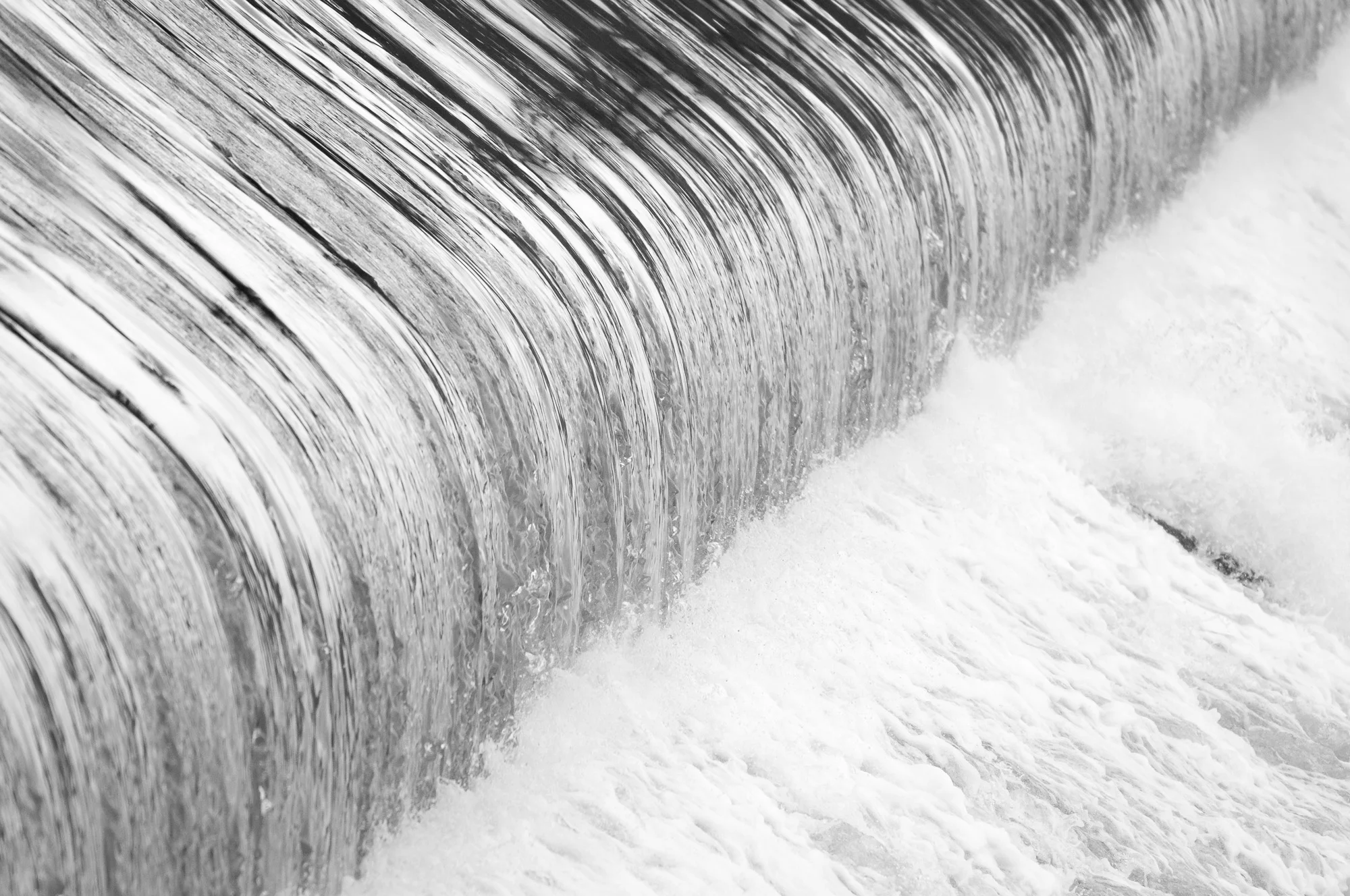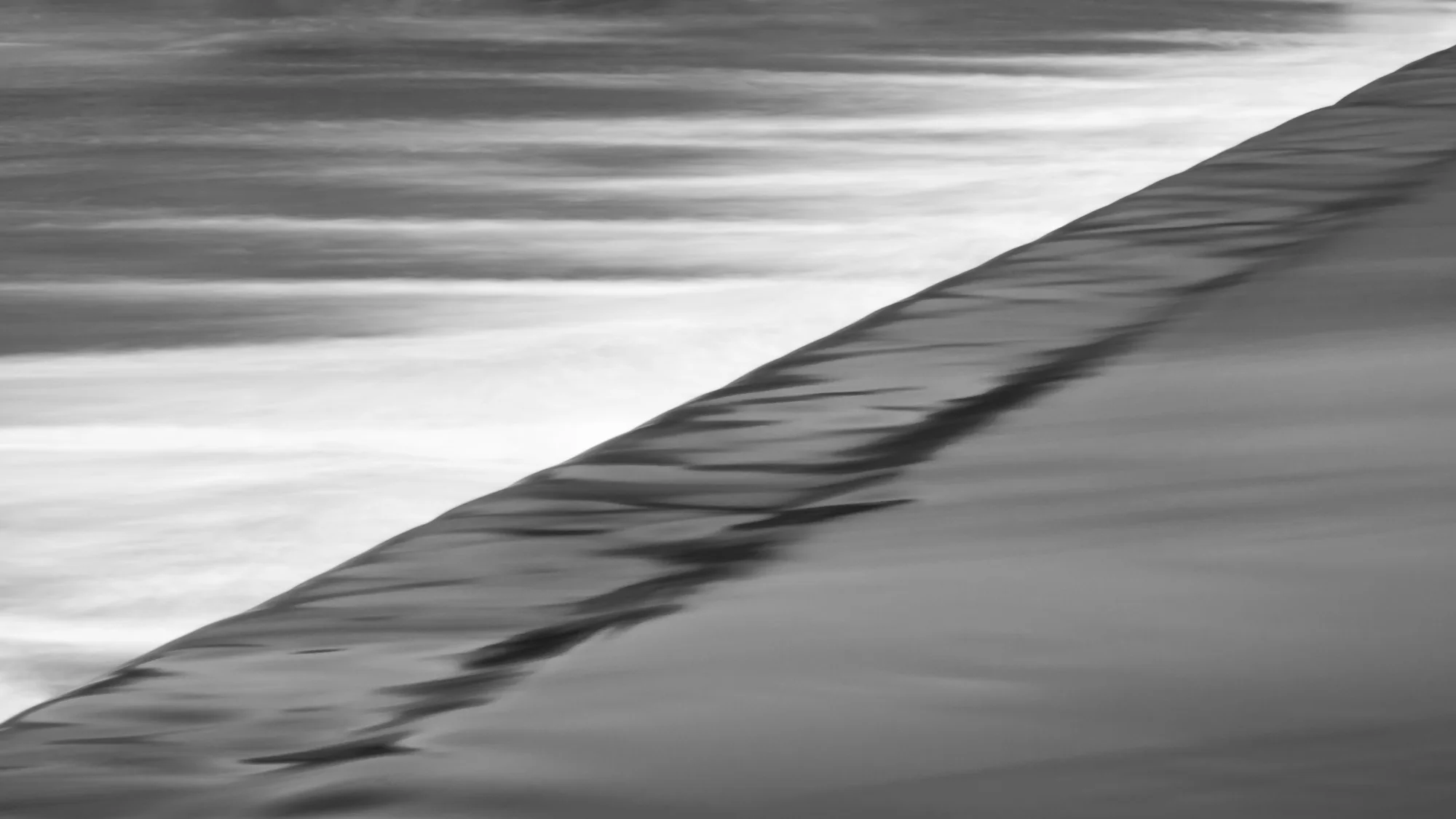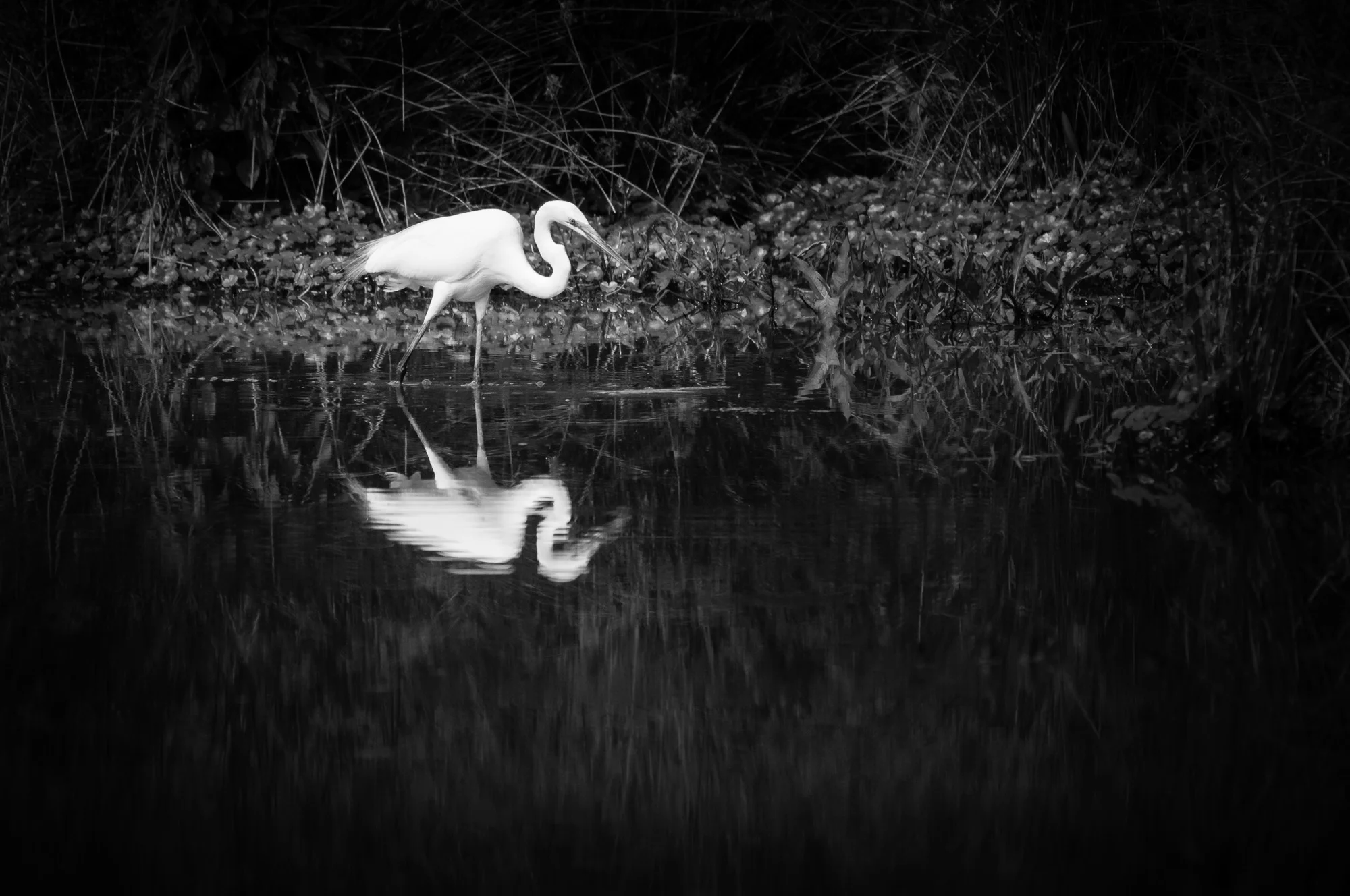Noontime Fog over Jordan Pond, Acadia National Park, Maine
We were visiting Acadia National Park in Maine. We’d read about all the beautiful sights, the grand vistas from atop the mountains, the crystal clear ponds in the valleys, the beautiful greenery of trees and other plant life.
But sometimes what you find isn’t what you were expecting. In this case we found an overpowering white fog engulfing the entire landscape, from the highest peak to the lowest valley. This meant, at least on this day, there would be no photo of the ocean below taken from atop the mountains. There would be no photo of the twin hills at the end of the beautifully clear pond.
Though that might sound like a disappointing day, it turned out far from it. It simply meant looking elsewhere for a photograph. Looking at the scenery with a different eye. Looking more closely, to where the fog intersects with the scenery, where a little detail begins to emerge. And making the fog a part of the photograph instead of trying to avoid it.
And so I created the photograph above of noontime fog over Jordan Pond. I liked the shape and texture of the rocks jutting into the water. And I liked the trees just emerging from the fog along the far shoreline, almost forming a triangle as the fog lifted toward the right. I found a tree reaching slightly over the water I could use to help frame the image, providing a border on the far right. The water and rocks helped frame in the lower right. The left side is then left open to the water and the fog.
I chose to process the image in black and white. Really, the only color in the scene was the green of the trees. The rest was very monochromatic, so I didn’t feel the color added anything to the look or feel of the image. Black and white seemed appropriate. And I find myself increasingly drawn to monochromatic images.
The processing itself was very simple, mostly adjusting the colors within the image to create pleasing tones of grey, something that is done with any black and white or monochromatic image. Even though the final image is black and white the original raw image file from the camera contains all the color information in the scene. You can then tweak this color balance in software (I used Adobe Lightroom), even while the image is converted to black and white. You can make greens lighter or darker shades of gray. You can make a blue sky black. You have a lot of control to help you express your interpretation of the scene.
The moral of today’s story is to not give up if the scene you see isn’t what you had expected. There will still be photographic opportunities out there. You might just need to look a little closer and think a little differently. Imagine yourself putting on a new pair of glasses, a special pair that lets you see the world in a different light. And then open your eyes and explore this beautiful new world!
Do you enjoy these posts?
Sign up to receive periodic emails with updates and thoughts. Don’t worry, I won’t spam you. And please consider purchasing artwork or products from my online store, and using my affiliate links in the sidebar to the right when shopping online.
I appreciate your support!























